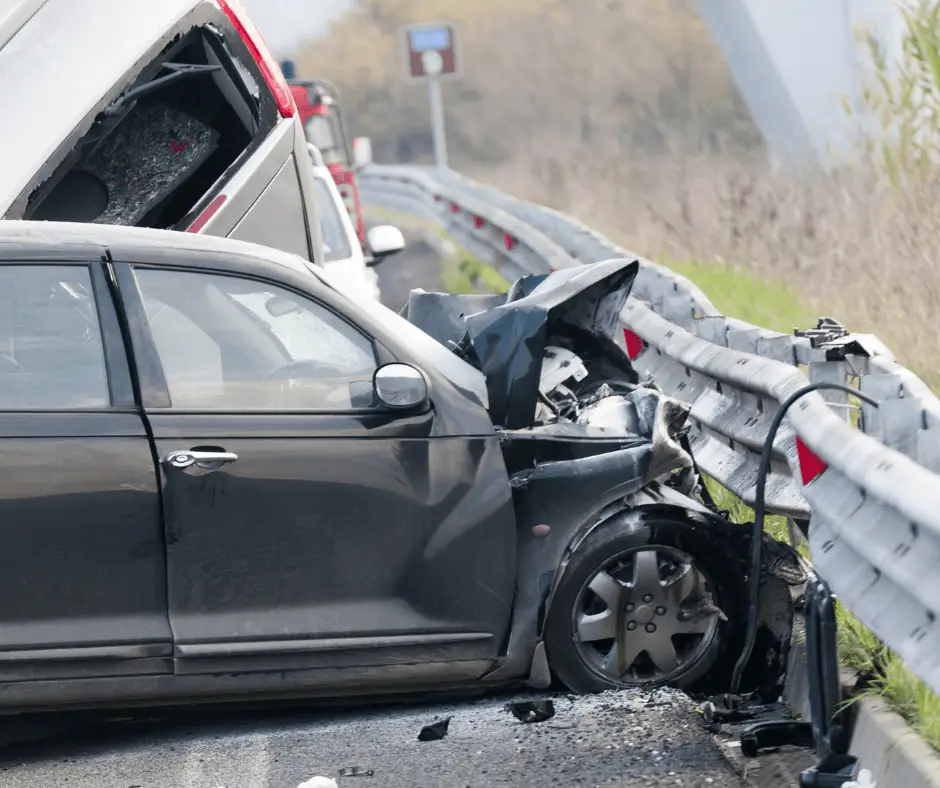If you’ve been in a car accident, knowing what steps to take can make a big difference. From ensuring everyone’s safety to handling insurance, here’s what you should do right after an accident to protect yourself and your rights.

After Auto Accident Check for Injuries and Ensure Safety
When a car accident happens, safety is the first priority. Follow these steps to make sure everyone is safe:
- Check Yourself and Passengers for Injuries
- Start by checking yourself for any pain or visible injuries.
- Then check on any passengers in your car to see if they need medical help.
- Call 911 if There Are Injuries
- If anyone is injured, call 911 immediately for medical assistance.
- Even if injuries seem minor, it’s always better to have a professional assessment.
- Move to a Safe Location if Possible
- If your car is drivable, pull it to the side of the road to avoid blocking traffic.
- Turn on your hazard lights to alert other drivers and prevent further accidents.
- Stay in the Car if It’s Not Safe to Exit
- If you’re in a high-traffic area or can’t safely leave your car, stay inside with your seatbelt fastened.
- Wait for emergency responders to arrive.
- Check on Other Parties Involved
- If it’s safe, check on the other driver and any passengers in their car.
- Avoid discussing who’s at fault or any accident details until authorities arrive.
Why It’s Important to Have a Record of the Accident and Medical Checkups:
Even if an accident seems minor, it’s crucial to create a clear record of both the incident and any medical checks afterward. Many people skip these steps, especially if they feel fine immediately after, but here’s why they’re so important:
- Shock Can Mask Injuries
Right after an accident, adrenaline can make injuries less noticeable. Pain or injuries may show up hours or even days later. A medical checkup provides a documented baseline, which can be essential if you start to feel pain afterward. - Police Report Supports Your Claim
A police report documents what happened and who was involved. This official report can protect you from being wrongly blamed or from complications if the other party changes their story. Insurance companies rely on these reports to process claims accurately. - Medical Records Help with Insurance and Legal Claims
Without medical documentation, it’s harder to prove that injuries are related to the accident. Insurance companies may argue that delayed pain or issues aren’t accident-related, which can lead to denied claims. Having records from a medical professional makes it much easier to pursue compensation if you need it.
Skipping these steps might seem convenient, but it can turn into a big problem later if injuries or other issues come up. Taking a little extra time at the scene and seeing a doctor afterward can make a huge difference.
After the Auto Accident Gather Information and Document the Scene
After ensuring everyone’s safety, the next step is to gather as much information as possible about the accident. Documenting the scene thoroughly can be a key factor in resolving any future disputes with insurance companies or in court. Start by exchanging basic information with the other driver, including names, contact details, and insurance information. It’s also essential to take photos of the accident scene from different angles, showing both vehicles, any visible damage, and the surrounding area. This visual evidence can provide critical support for your claim.
If there were any witnesses, try to get their contact information as well. Witnesses can offer an unbiased account of the accident, which can be helpful if there are conflicting stories later on. Take notes on the time, location, and any weather or road conditions that may have contributed to the accident. Even small details, like street signs or traffic signals, can be important. This documentation ensures you have a full picture of the incident, which can help protect your rights and strengthen your case with the insurance company.
Report the Accident and Notify Your Insurance
Once you’ve gathered information and documented the accident, it’s essential to report it promptly. Start by contacting the local police to file an official report, even for minor accidents. A police report can serve as crucial evidence if any disputes arise later. In Texas, accidents involving injuries, fatalities, or significant property damage must be reported, but having a report for even smaller incidents can protect you.
After reporting to the police, notify your insurance company about the accident, but do not accept any settlement offers before consulting with an expert. Insurance companies often try to settle quickly and for as little as possible, which may not cover all your current and future expenses. Accepting an offer too soon can prevent you from pursuing further compensation later if unexpected medical issues or repair costs arise. Consulting a legal professional before agreeing to any settlement can help ensure you’re fairly compensated and fully protected.